In an exclusive interview with Sunday mid-day, former terror attack accused, now acquitted talk about life spent among unforgiving would-be employers, brides and landlords

Abdul Wahid Din Mohammed Shaikh, 37, was accused of harbouring Pakistanis (who along with 13 Indian conspirators allegedly assembled bombs that went off in the 7/11 blasts) at his Mumbra home. He was acquitted in 2015 after 9 years. Although he works at a
When 37-year-old Abdul Wahid Din Mohammed Shaikh resumed work at Grant Road-s Jan Mohammed Kasam High School last year, it was the candid questions of the class 7 and 8 students that caught him off guard.
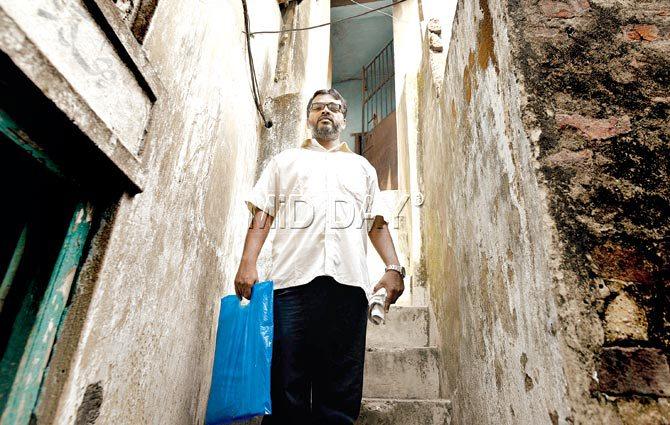
Abdul Wahid Din Mohammed Shaikh, 37, was accused of harbouring Pakistanis who along with 13 Indian conspirators allegedly assembled bombs that went off in the 7/11 blasts at his Mumbra home. He was acquitted in 2015 after 9 years. Although he works at a Grant Road school, the government refuses to release his salary. "It does not believe in my acquittal," he says. Pic/Rana Chakraborty
"I was resuming work after nine years and none of the kids had seen me around," says Wahid, who on September 29, 2006, was arrested for alleged involvement in the July 11, 2006, Mumbai train blasts that left 188 commuters dead. "One day, a student asked if I was new to the profession. Before I could respond, another whispered to him, -Don-t you know? Sir has come from jail.- I was taken aback." Wahid, who was released from Arthur Road Jail where he was lodged for nine years, after being acquitted in the case by a Sessions Court in September 2015, surmises that the students must have heard of his case on television or read of it in the papers.
He says that when they realised that he was comfortable answering questions pertaining to his time in prison, they let their curiosity unfold. Questions ranged from if he had to stand in queue for food to if he was roughed up. Facing a class of 12- and 13-year-olds could never be easy. Much less so, if there-s a curiosity about your past. And, Wahid knows that although he has been rid of the terror tag, he will always be a -former terror accused-.
Every one who has been to prison on a terror charge will speak of post traumatic stress disorder PTSD. Mohammed Amir Khan, who was in 2012 acquitted on charges of masterminding a series of 17 low-intensity blasts in the Capital between 1996 and 1997, speaks of how the 14 years he spent behind bars left him with a chronic fear of the khaki.
"I still have nightmares of police vans chasing me," says the 36-year-old, who lives in the Sadar Bazaar area of Old Delhi. But, the demons that haunt you once you are pronounced not guilty, are not just personal. Whether while looking for livelihood, a home to rent or creating new social bonds, mention of such a case — even if the court has ruled that you were falsely implicated — proves an obstacle. Which is probably why last month, eight men who had been acquitted in the 2006 Malegaon blasts demanded a compensation of R1 crore each from the Maharashtra government in lieu of being falsely implicated in the case by the then Anti-Terrorism Squad ATS, also demanding prosecution of the then ATS chief, KP Raghuwanshi and his team.
Compensation to those arrested on terror charges, and later acquitted, does have precedence. In 2010, India-born Dr Mohamed Haneef, detained in Australia on terror-related charges in 2007, reportedly received a compensation of 1 million, in addition to a formal apology from the government. In India, the Andhra Pradesh government in a -confidence building measure-, ordered a compensation of R3 lakh each to 16 Muslim youth arrested, and later acquitted, in connection with the 2007 Mecca Masjid blasts in Hyderabad.
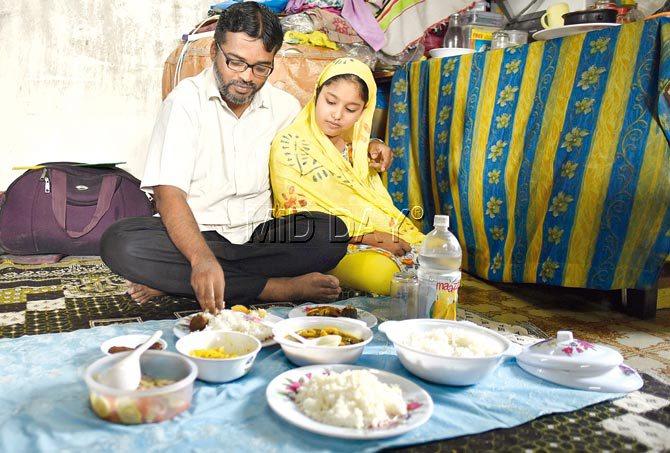
Abdul Wahid Din Mohammed Shaikh, accused of harbouring Pakistani nationals who along with 13 Indian conspirators allegedly assembled the bombs that went off in the 7/11 blasts at his Mumbra home, says the time spent in prison kept him away from his children — son Umar then 1.5 years and daughter Umrah in pic, then six months. "I missed out on taking them out on vacations, picking them up from school. I have lost the most precious days of my life," he says. Pic/Rana Chakraborty
Not suitable enough
Wahid grew up in Vikhroli and attended a local municipal school. After clearing the HSC exam, he acquired a Diploma in Education and started teaching math, Hindi and English at the Anjuman-e-Islam-run school. He says though acquitted by one court, the police are still persecuting him and restricting his income.
"I have been working since eight months but the government has not released my salary. It does not believe in my acquittal. It says it will appeal in the High Court." In the meanwhile, Wahid has taken a monthly loan of R15,000 from the school. The money will be deducted from his salary, once it is released.
It-s not just the salaried, but also those with their own businesses and clinics who find it difficult to re-establish themselves. Dr Fargoh Makhdoomi from Malegaon is a 43-year-old with a Bachelors degree in Unani Medicine and Surgery, a qualified dentist from the Government Dental College, with a diploma in optometry.
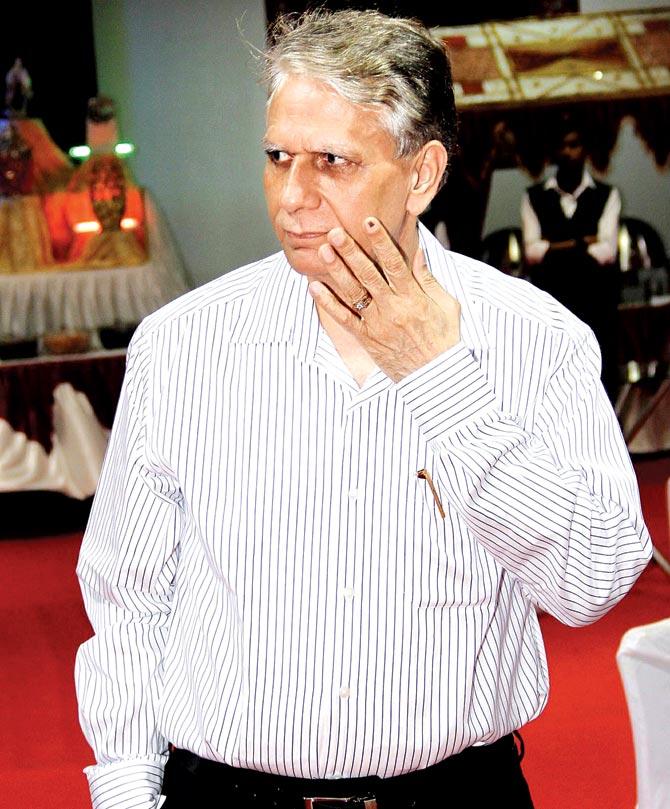
K P Raghuwanshi
He also has a law degree. Makhdoomi, who was arrested in the Malegaon blasts case, completed a bachelors and later, a masters degree in art while in prison between 2006 and 2011. At the time of arrest, he was a practising doctor. Even wafter being released on bail, the practice suffered.
"Initially, I did not know what to do. I approached friends and others for work at their clinics, but no one trusted me. Even if they felt that I was innocent, they feared that my being attached to their clinic, would make them a target of the police. For three months, I sat at home and lost confidence in my ability to work. It was with my wife and parents- help that I could start my own clinic which is now running well."
Factoring in trust
Thise acquitted of terror charges often find it challenging to rebuild social trust, as Raees Ahmed 45, accused of planting the 2006 Malegaon bombs, has learnt. A tailor, Raees started a battery business after moving to Malegaon in 1990. The family had to sell off the business and the shop after his arrest. When he was released on bail in 2011, he tried looking for a job as a daily wage labourer but realised the no one wanted to employ him. His current business involves selling artificial jewellery, cosmetics and cutlery at a shop in Anjum Chowk, Malegaon.
"This was my wife-s idea. When she visited me at the Special MCOCA court and Arthur Road Jail between 2007 and 2010, she-d pick up artificial jewellery sets from around and sell them back home," says Raees, who also recalls how tough it was to find matrimonial matches for his two daughters. Life now, he says, is only a shade better. "The owner of my store keeps harassing me as if the cops will arrest me again."
Need for rehab
Arrested at the age of 18, Aamir, who once dreamt of being a pilot, says all he wants now is a -dignified job-. Acquitted in 2012, the 14 years in jail robbed him of more than just time. "In 1998, things were very different. When I was released, technology had progressed by leaps and bounds. People were using advanced phones, social media, ATMs and the metro."
He was stuck in 1998, older, without a degree — "I tried to continue my study through the Indira Gandhi National Open University IGNOU in jail, but the authorities spoiled my attempt midway" — and not qualified for most jobs.
"Several NGOs offered me a chance to be associated with them. I joined ANHAD, a Delhi-based outfit run by activist Shabnam Hashmi, and worked there for four years. Now, I am working as a researcher with Aman Biradri with activists like Harsh Mander. I am part of a National Human Rights Commission project on jail reforms," he says. What he wants — more than monetary compensation — is rehabilitation. "The state has a policy for rehabilitating surrendered terrorists. Why don-t they have a similar policy for those wrongly sent to jail?" he wonders.
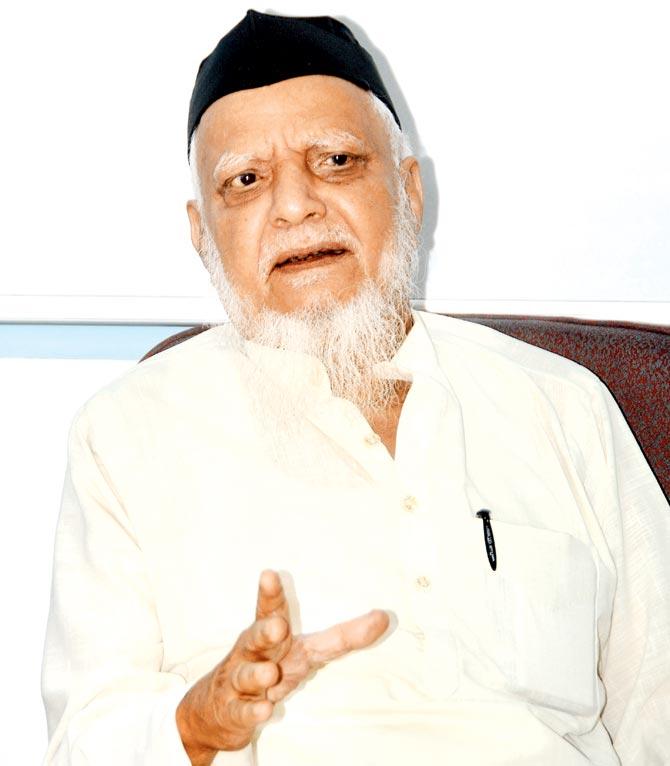
Gulzar Azmi
Gulzar Azmi, secretary of the legal cell of Jamiat Ulema, an Islamic organisation, says that despite acquittals in terror cases, rehabilitation of victims remains a challenge. "They do not get jobs. Even if they get private jobs, they are never offered handsome salaries. They find it hard to get married." He says about 200 people have been acquitted in different terror related cases since 2006, and about 700 are in different jails in India in terror-related cases.
Undoing the damage
Those acquitted in the Malegaon blasts case have also demanded a character certificate from the government. While there is no precedence for this, Malegaon-based advocate Irfana Hamdani, says, "Their names are listed in various immigration centres in India. If they plan to go abroad, their passports are blocked, which is why a character certificate is important. Even if they are no longer considered terrorists by law, public memory associates them with the attacks."
From doc to shepherd
Dr Salman Farsi 44, a medical emergency practitioner, who was recently acquitted in the 2006 Malegaon blasts, believes it is impossible to -repay- for the five years spent in jail, or remove the stigma.
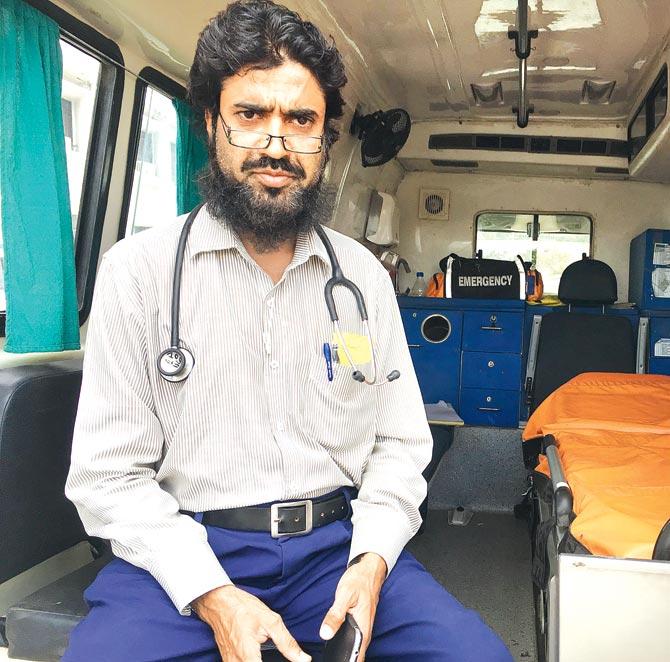
Dr Salman Farsi now works with a government ambulance service in a village on the outskirts of Malegaon. Pic/Mubasshir Mushtaq
In the five years since his release on bail in November 2011, Farsi — arrested for having participated in the conspiracy and orchestrating the blasts — has struggled to feed his family. From unsuccessfully reopening a clinic in a Malegaon slum to taking a clerical job with the Welfare Party of India WPI in New Delhi to being a cattle herder in Yeola town in Nashik district, Farsi has been doing odd jobs to make ends meet.
When demanding compensation, he thinks R1 crore isn-t enough. Quoting the case of Dr Haneef, who was paid 1 million, he asks, "Why can-t the Indian government compensate us similarly?" "In 2016, our compensation comes to Rs 1.5 crore per day."
Farsi-s medical practice along with his wife-s — also a Unani doctor — came to a standstill following his arrest. He believes the government should give his family a "world tour visa" and bear all the expenses to compensate for the "mental agony" of the false terror case.
Moreover, he wants that the government conduct a narco analysis test on the ATS officers who "deliberately framed" him. "The narco tests would expose the actual relationship of ATS officers with the real terrorists," he adds.
I have seen how their families suffered — wives left to cope and fend for themselves, stunned and bewildered parents pleading their sons- innocence and all those interrupted childhoods, -fatherless- kids unable to make sense, seeing their Abbu behind bars, meeting him once every year or two in jail.
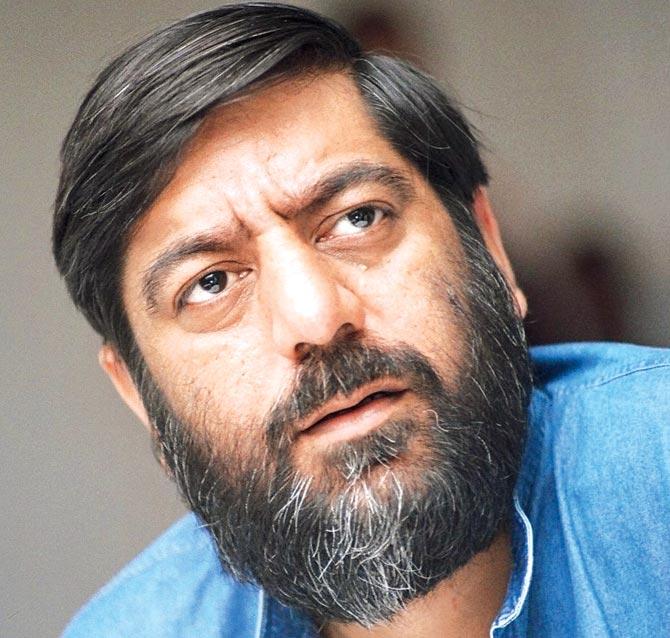
Rakesh Sharma, Goa-based documentary filmmaker, currently making a film on Malegaon
Not only must these men be compensated, but the guilty police officers must be awarded exemplary punishment by the courts to send a stern message to their counterparts in other states. The sheer number of such cases resulting in acquittals after years of incarceration especially from Gujarat, Maharashtra, Karnataka and Delhi suggests that the communalisation of police forces and partisan investigations are a deep-rooted and widespread malaise.
The various attacks
1997: Between 1996 and 1997, 17 low-intensity bomb blasts occurred in Delhi and neighbour-ing states, killing 5 people
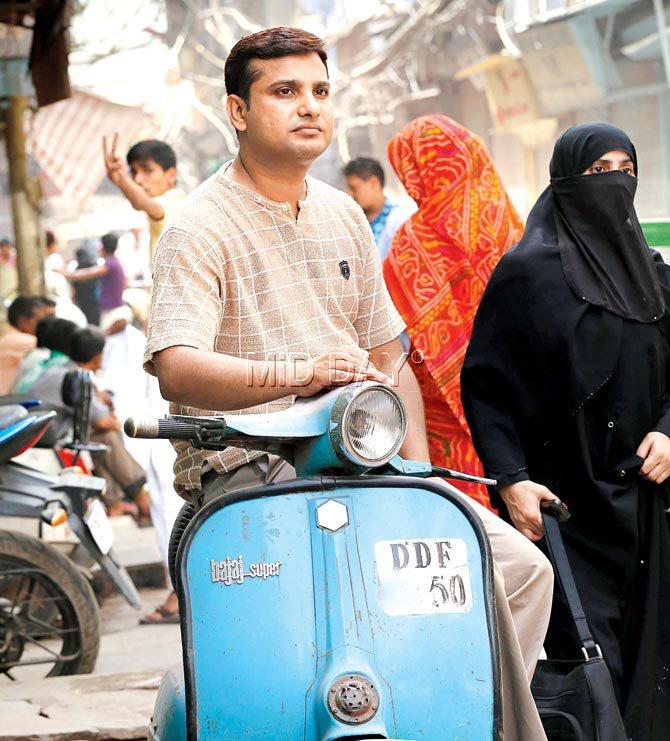
After his acquittal in the 1996-97 Delhi blasts case, Mohammad Aamir Khan accused of masterminding the attacks married Alia Khan, a teacher at a private school. A delegation of well-wishers, including lawyers and activists, had to convince Alia’s father of his character and accept the proposal. The couple has chosen a non-Islamic name for their two-year-old daughter. Pic/Ajay Gautam
2006: On July 11, a series of seven blasts on the Mumbai local trains, killed 209 people and left over 700 injured. On September 8, a series of blasts took place in Malegaon, in which 37 people died and 125 were injured
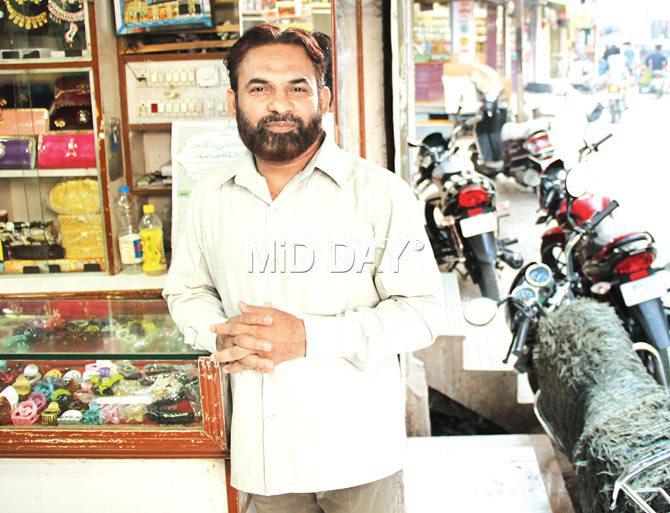
Raees Ahmed 45, who had been accused of planting the Malegaon bombs, says his wife had to sell their shop at a nominal amount to raise money. His children’s education suffered. Today, he runs an artificial jewellery store in Malegoan. PIC/ Mubasshir Mushtaq
2007: On May 18, blasts took place inside the Mecca Masjid located in the old city area of Hyderabad. 16 people were killed of which five were killed in a police firing to quell the mob, while over 50 were injured
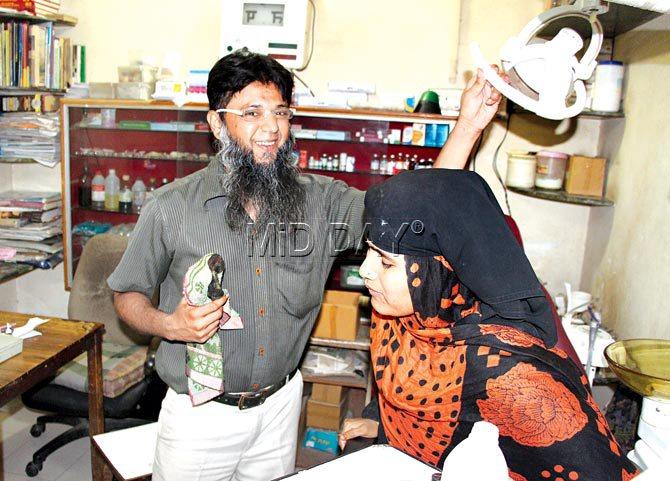
Fargoh Makhdoomi 43, acquitted this April in the Malegaon blasts case, now runs the Makhdoomi Polyclinic on Kusumba Road in Malegaon. Arrested for being a conspirator in the blasts, he says his family also became a target of the police, with cops barging in often without intimation. Pic/Mubasshir Mushtaq
-Will have to check-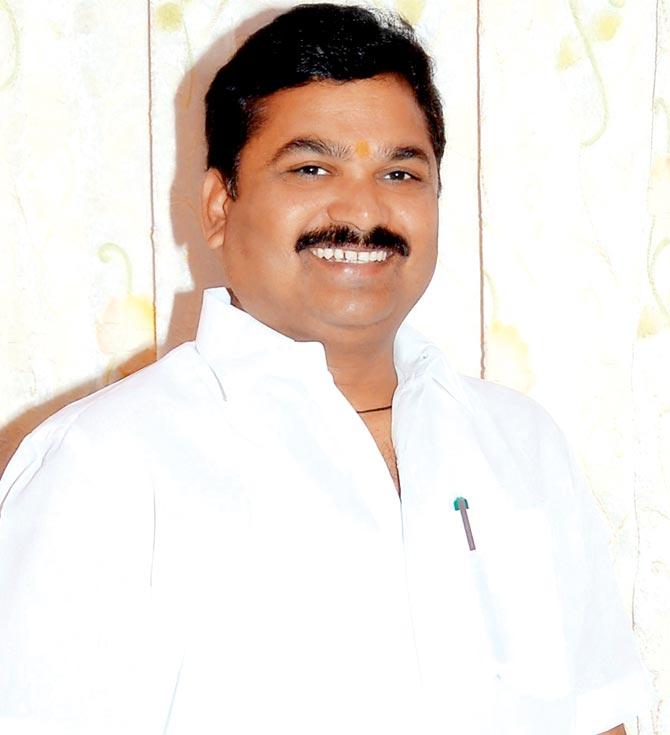
Prof Ram Shinde, minister of state for home, said he has not come across any such letter demanding compensation for Malegaon blasts acquitted. But he said that whenever the application is brought to his notice, the government will check for legal provisions that allow appropriate measures to be taken in this regard.
 Subscribe today by clicking the link and stay updated with the latest news!" Click here!
Subscribe today by clicking the link and stay updated with the latest news!" Click here!







